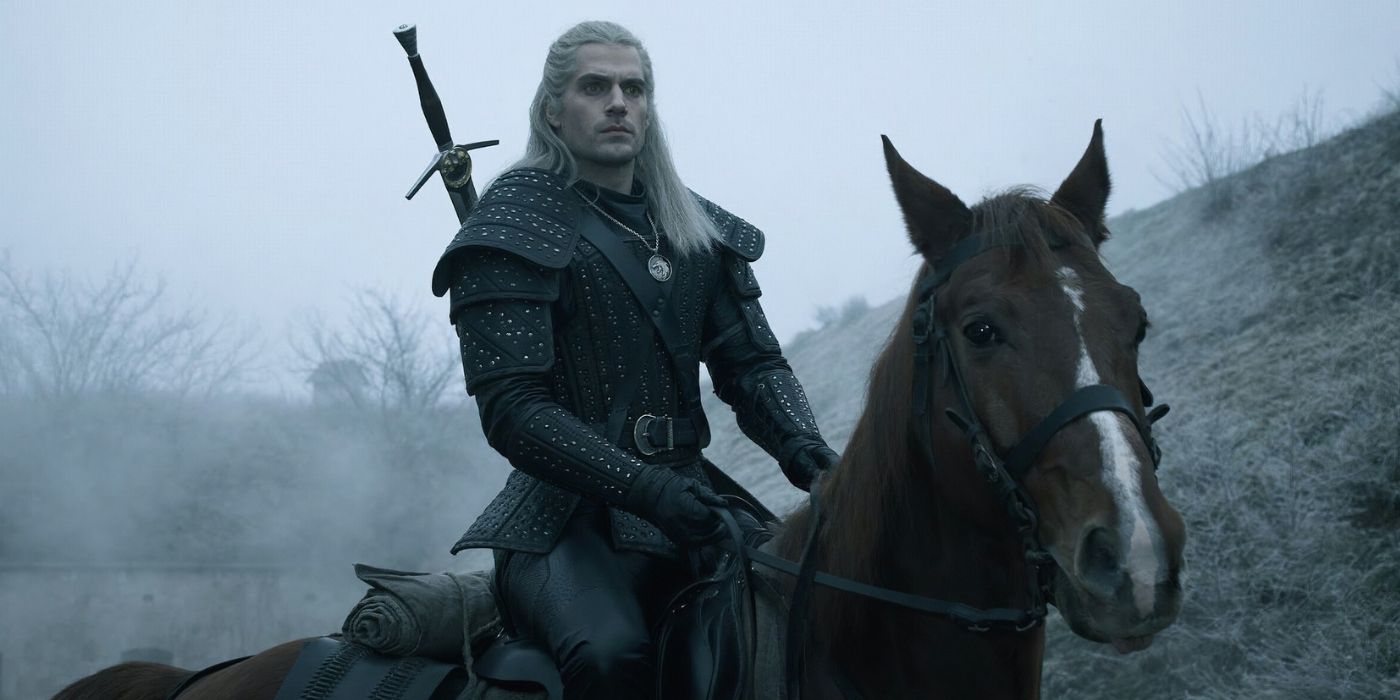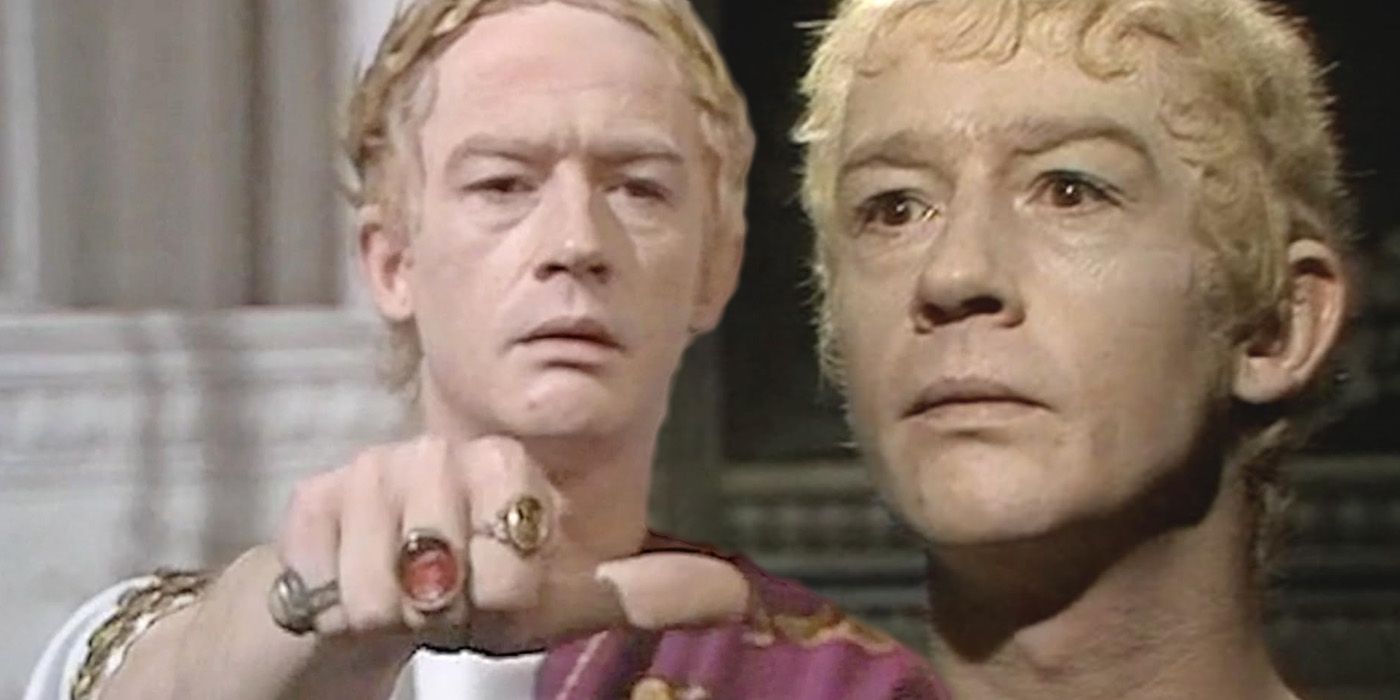As Gladiator II returns audiences to the savagery and spectacle that existed in Ancient Rome, a genuine interest in the Imperial Family that ruled the empire for hundreds of years has once again been piqued by Ridley Scott’s stylized depictions of history. The intrigue and cloak-and-dagger tactics of manipulation that exist in the corridors of power have always spurned interest among audiences. There is no better example of the plotting, scheming, and manipulation within the confines of the Roman Imperial family than that depicted in the 1976 BBC miniseries I, Claudius.
Based on the novels I, Claudius and Claudius the God by Robert Graves, I, Claudius consisted of a narrative that took place during the reign of Augustus Caesar and culminated with the ascension of Nero to the throne. Fans of Ridley Scott’s first Gladiator movie will recognize the actor in the titular role, Derek Jacobi. Taking it upon himself to chronicle the events of his life as a member of the Imperial family and the intrigue that exists among those attempting to usurp power in a memoir, I, Claudius is a star-studded exercise in historical fiction that thrives on powerful performances.
Ascension, Assassinations, and Intrigue
The narrative of I, Claudius is structured around the titular character writing a book about his life, one that begins before his birth and culminates shortly before its end. The reigns of four different emperors are chronicled, beginning with Augustus Caesar (Brian Blessed). The first Roman Emperor, Augustus, oversaw what historians call the Pax Romana, or “great peace.” His rule was marked by a series of military expansions and public works. In I, Claudius, Blessed portrays the emperor as somewhat of a reluctant monarch, one who still has some affection for the republic, which Claudius will share throughout the duration of his life.
Augustus’ reign is one in which he sees much of his plans undone behind the scenes, as his wife, Livia (Sian Phillips), is intent on placing her son, Tiberius (George Baker), on the throne. Claudius is born into a world where the backstabbing and manipulation of the Imperial family among the prospective heirs to Augustus’ throne is rife and permeates the halls of power. The strength of much of the intrigue in I, Claudius is partly due to a limitation regarding presentation. I, Claudius, uses very few sets and thrives on the performances of the actors and dialogue that weaves a complex tale of the inner workings of the Imperial family.
The ascension of Tiberius to the throne is when the unrestrained debauchery of the Roman Emperors, which has been a primary staple in many films, begins to dominate much of the narrative. During the reign of Tiberius, the whole of Rome is held in a perpetual state of fear by the oppression dealt out by Sejanus (Patrick Stewart), commander of the Pretorian Guard, whose appetite and ambition for power will be the cause of his eventual undoing. The incredible performances of Baker and Stewart, the Emperor, and his right-hand man are exceptional but pale in comparison to that of John Hurt’s as Caligula.
The saga of Caligula, the third Roman Emperor, is one of madness and terror that’s been told multiple times through films and documentary specials. Caligula’s reign is synonymous with actions ranging from the ridiculous, such as naming a horse a member of the Senate, to the lecherous, such as having an incestuous relationship with his sister, Druscilla, and proclaiming himself a god.
Due to the budget constraints, limited sets, and the fact that only so much can be depicted on a television program, documenting Caligula’s reign and his many actions is dependent upon Hurt’s performance. John Hurt, who had previously starred as Quentin Crisp in The Naked Civil Servant and Richard Rich in A Man for All Seasons, unquestionably delivered one of the finest performances of his career. Hurt captures the degenerative behavior and excess commonly associated with Caligula and encapsulates the unrestrained madness and sociopathy of a tyrant gone mad.
Related 10 Best Docuseries About the Roman Empire
Here are some docuseries that history buffs need to check out for extra information about the Roman Empire.
Playing the Fool in a Bid For Survival
BBC
With so much intrigue and desperation to usurp power among the imperial family and those closest to them, Claudius systematically undermines the forces working around him by playing the fool. Born with a limp and a stammer, Claudius is thought of as a fool, an idiot, and an overall embarrassment to the imperial family. Claudius learns to use his disabilities to his advantage and continually avoids the plotting and scheming that exist around him.
Derek Jacobi’s performance sees the actor mimicking the afflictions that were associated with the emperor, such as his difficulties with speech. Yet, despite his outward appearance, Claudius ends up being much smarter than his enemies and possesses moral characteristics that show him to be a more virtuous leader than his predecessors, Caligula and Tiberius. Appointed to the throne by the Pretorian Guard following the assassination of Caligula, Claudius is a reluctant leader who plans to abolish the monarchy and re-establish the republic. And yet, despite the altruistic qualities that he possesses as a leader, he falls prey to the same web of corruption that dogged the imperial family before him.
Friedrich Nietzsche formulated the philosophical idea of eternal recurrence. Nietzsche’s theory states that events continue to repeat themselves in a never-ending cycle without end. This theory is plainly visible in the case of Claudius’ reign as emperor. Like Augustus before him, a reluctant monarch who ended up in a position of power and was eventually undone by those closest to him, Claudius succumbs to the aspects of intrigue and subterfuge he so cleverly avoided before becoming emperor. With the passing of Claudius, Nero became emperor, and Rome would never again return to its days of being a republic ruled by the senate.
Related The 15 Best Movies About the Roman Empire, Ranked
People’s interest in the Roman Empire never ends. Therefore, here are the best movies about the Roman Empire, ranked.
Intrigue, Thy Name is Claudius
BBC
It’s been over four decades since I, Claudius, debuted on the BBC. In the time since, multiple television series and films have depicted Ancient Rome in various ways, from the highly acclaimed series Rome to Ridley Scott’s Gladiator movies. I, Claudius is unique in that it proves that limited sets, a compelling script, and performances from actors who fully commit to their roles can outshine a lavish and grandiose production with sensationalized content.
In fact, I, Claudius deserves praise alongside The Shining as an adaptation that takes liberties but far surpasses its source material as being intriguing, captivating, and having the means to incite discussion and multiple viewings. The reign of Emperor Claudius might have been limited in its length, but I, Claudius, will always remain a pinnacle of performance and a vivid look at the intrigue that exists within the corridors of power. Stream on Hoopla.
You can view the original article HERE.






























